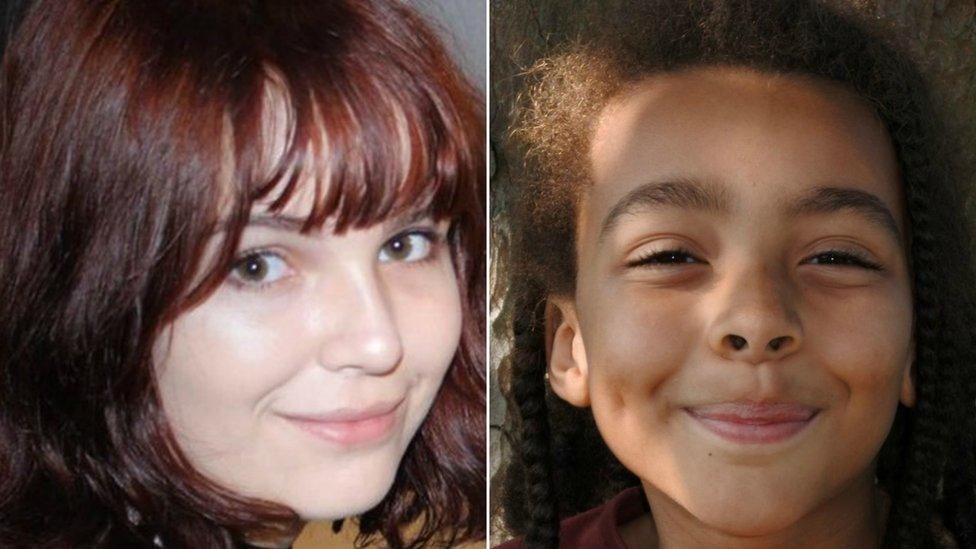Hannah Berry: New UK comics laureate to harness 'untapped' potential
- Published
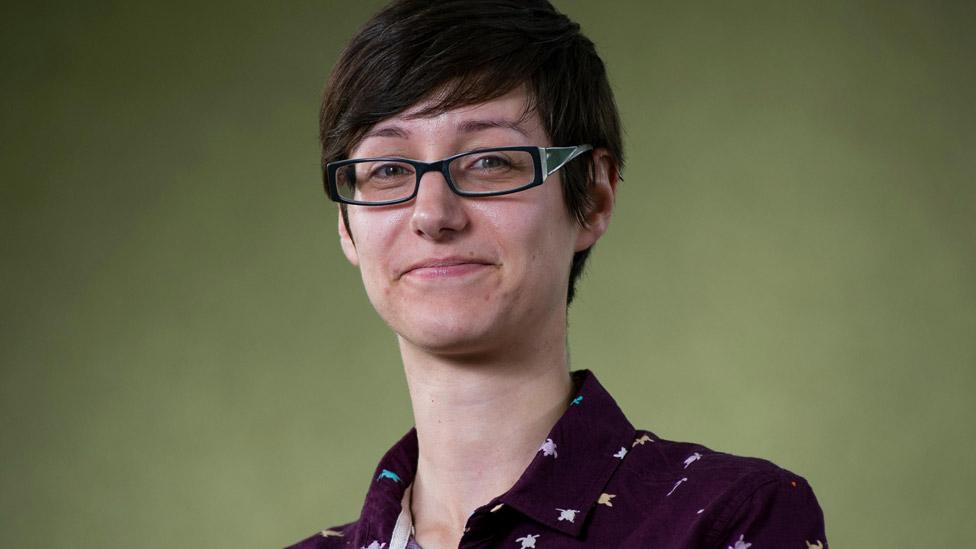
Hannah Berry will take over as comics laureate from Charlie Adlard in 2019
New comics laureate Hannah Berry has said she wants to use the position to remove some of the "stigma" that still surrounds graphic novels and comics, and harness their "untapped" potential.
Berry is the award-winning creator of graphic novels Adamtine and Livestock.
"There are still a lot of people who think comics are just superheroes throwing stuff at each other.
"With the enormous, diverse, wealth of subjects out there, there's a graphic novel for everybody," she said.
"There's nothing wrong with superhero comics, but I think if people were aware, maybe the stigma could be removed."
Brighton-based Berry was unveiled as the UK's third comics laureate, and the first woman in the post, at the Lakes International Comic Art Festival in Kendal, Cumbria, on Friday.
The job is described as an "ambassadorial and educational role" for the comic genre, intended to raise awareness of the impact comics can have on literacy and creativity.
Berry will take over from Walking Dead artist Charlie Adlard in 2019.
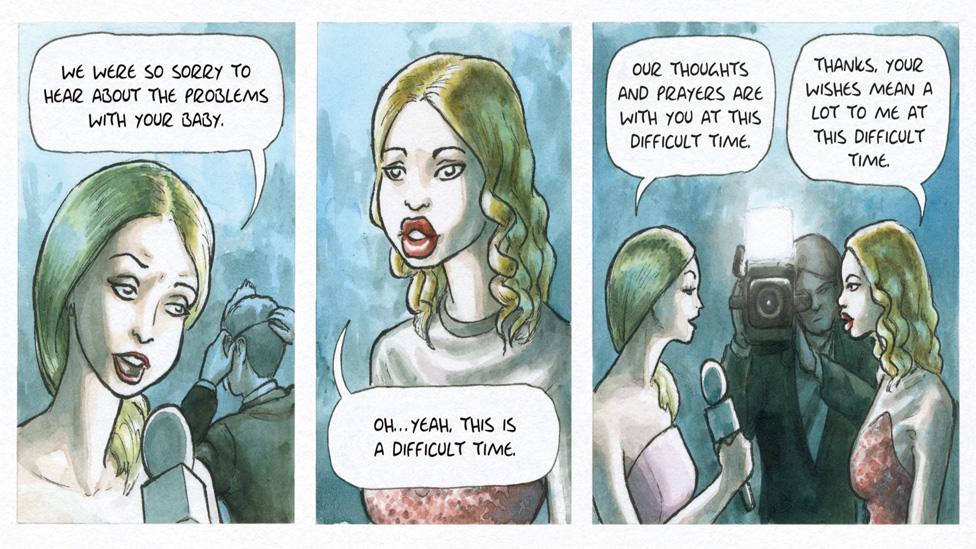
Berry's 2017 book Livestock examines the relationship between celebrity and politics
Part of her duties will be to introduce comic books into literacy programmes in schools and libraries, and she also wants to work out a way to use comics to teach English.
"My mum is from Ecuador and when her family moved to the States for some time, she went to a school in Maryland," she told BBC News.
"She didn't speak English and learned it through reading comics with my granddad.
"I think the use of comics as a literacy tool for people learning English as a foreign language is phenomenal and almost untapped."
Berry said the first comic she ever read was Calvin and Hobbes, which followed the antics of a clever six-year-old boy named Calvin and stuffed tiger Hobbes.
"I kind of credit them for giving me the love of language.
"I remember reading them at the age of six and seeing Calvin use the most amazing vocabulary, I thought to myself, 'I'm going to be as good as him!"
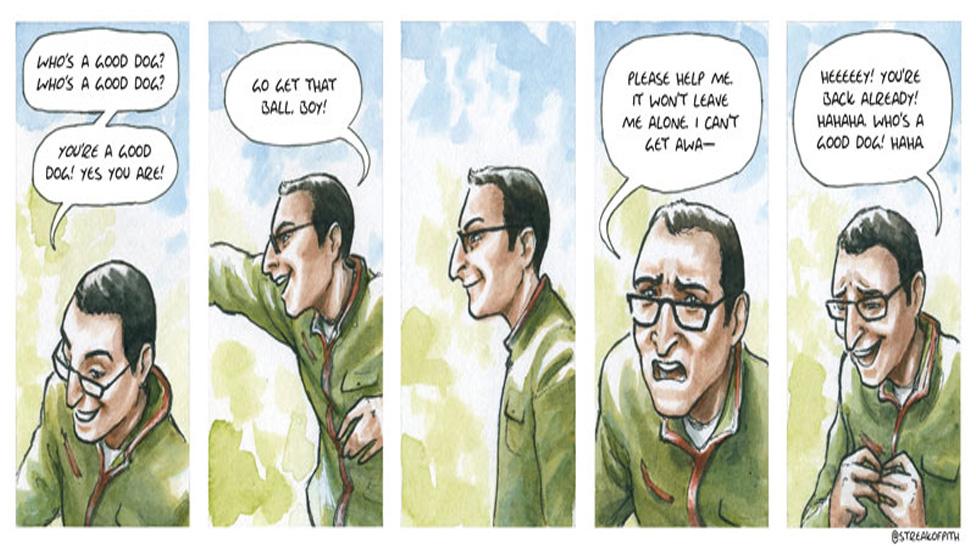
It's because of this kind of accessibility why the author believes that comics are a great way to attract younger readers.
"The visual side of things is so easily relatable - it's like an inherent part of our psychology," she said.
"We can relate to things on the page before we understand the written word."
But the author believes the medium's accessibility can also be its downfall, because people think comics are childish "because of their simplicity".
She added: "There are hidden worlds and huge amounts of depth in the images and really rich worlds are portrayed."

Follow us on Facebook, external, on Twitter @BBCNewsEnts, external, or on Instagram at bbcnewsents, external. If you have a story suggestion email entertainment.news@bbc.co.uk.
- Published4 September 2018
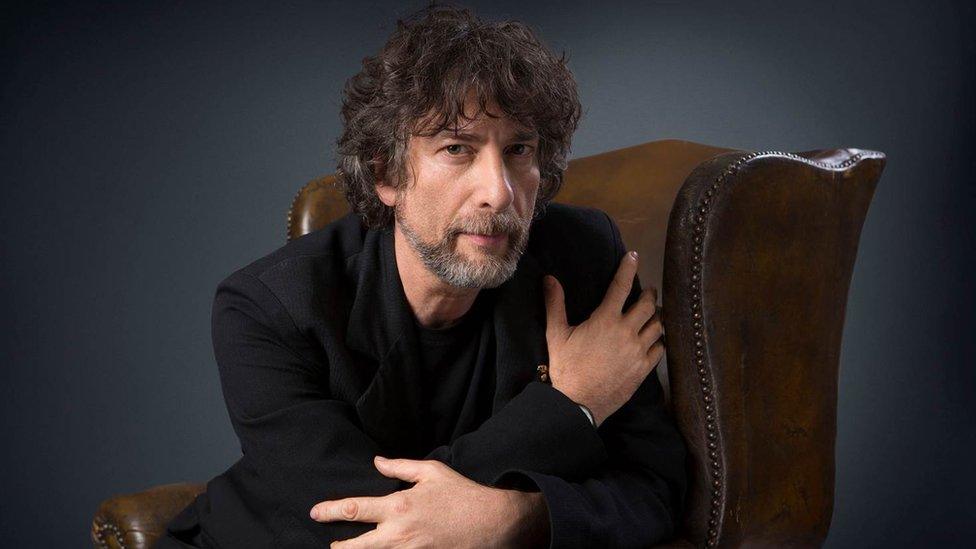
- Published18 August 2018
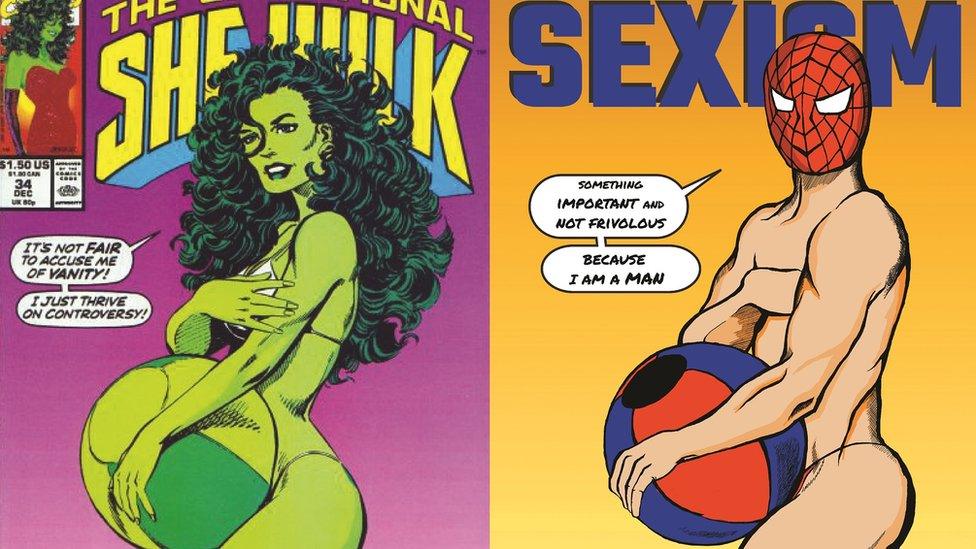
- Published15 March 2018

- Published12 October 2018
